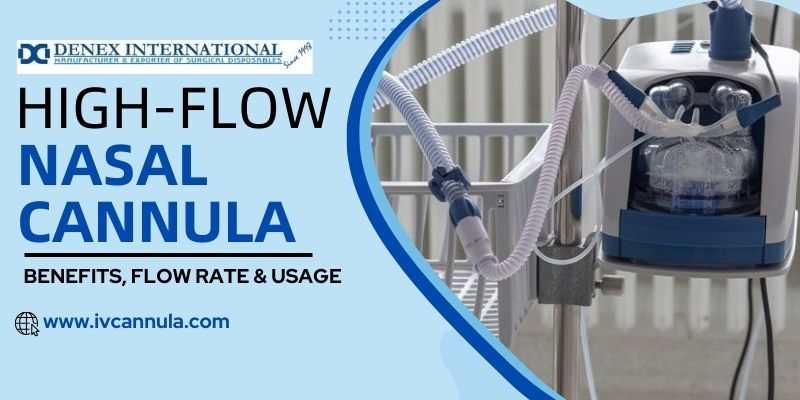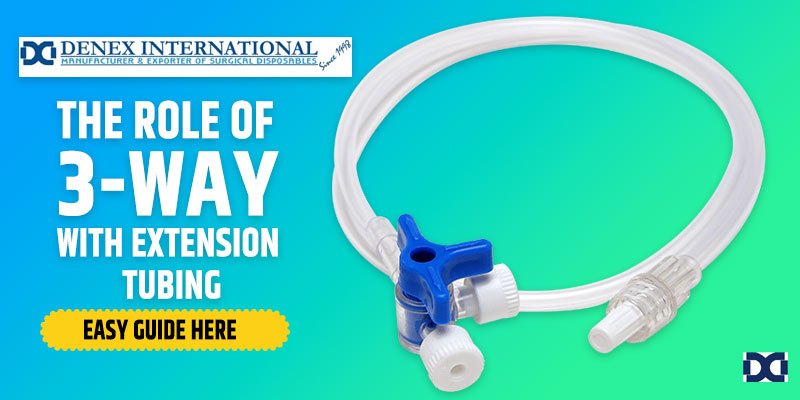In the fast-paced and ever-evolving healthcare landscape, disposable equipment has become indispensable. Denex International, a leading Medical Disposable Manufacturer in India, recognizes the pivotal role that disposable equipment plays in ensuring the safety, efficiency, and hygiene of healthcare facilities. In this blog post, we will delve into The Crucial Role of Disposable Equipment in Healthcare Facilities.
Medical Disposable:
Medical disposables refer to a wide range of single-use products designed for medical purposes, contributing to hygiene, safety, and efficiency within healthcare settings. These items are crafted from materials that meet stringent quality and safety standards, ensuring they can be used once and then discarded to prevent the risk of contamination and infection. Examples of medical disposables include gloves, masks, gowns, syringes, needles, and catheters.
Why use Disposable Equipment in Healthcare Facilities?
In the dynamic realm of healthcare, where the pursuit of patient safety and infection control is paramount, using disposable equipment is a cornerstone practice. The decision to use disposable medical equipment within healthcare facilities is far more than a matter of convenience; it is a strategic imperative rooted in hygiene, efficiency, and patient well-being. We will explore the compelling reasons behind the pervasive adoption of disposable equipment in healthcare settings, shedding light on its multifaceted role in shaping modern medical practices and ensuring the highest standards of care.
The Essence of Hygiene:
One of the primary reasons disposable equipment is favored in healthcare facilities is its ability to maintain stringent hygiene standards. Disposable medical equipment acts as a barrier between patients and potential contaminants in a setting where preventing the spread of infections and diseases is paramount. Items such as disposable gloves, masks, and gowns provide a one-time-use solution that minimizes the risk of cross-contamination.
Infectious Disease Control:
Healthcare facilities often deal with patients carrying various infectious diseases. Disposable equipment becomes imperative to curb the transmission of pathogens from one patient to another. Single-use items, such as needles, syringes, and catheters, eliminate the risk of needlestick injuries and ensure that each patient is treated with sterile instruments, reducing the chance of infection transmission.
Time and Cost Efficiency:
While the initial cost of disposable equipment might seem higher than that of reusable alternatives, the long-term benefits outweigh the investment. The time saved on cleaning, sterilizing, and maintaining reusable equipment is redirected towards patient care. Additionally, the costs associated with stringent sterilization processes and potential damages to reusable items are mitigated when using disposable medical equipment.
Patient Comfort and Satisfaction:
Disposable equipment contributes to the safety of healthcare facilities and enhances the overall patient experience. Patients are more likely to feel at ease knowing that the equipment used during their treatment is fresh, clean, and exclusively for them. This sense of security fosters trust between healthcare providers and patients, ultimately increasing patient satisfaction.
Environmental Considerations:
Although the environmental impact of disposable medical equipment is a concern, advancements in eco-friendly materials and recycling practices are helping to mitigate this issue. Manufacturers like Denex International are committed to producing sustainable medical disposables, minimizing the environmental footprint without compromising safety and hygiene.
Regulatory Compliance:
Healthcare facilities must adhere to strict regulatory guidelines to ensure the well-being of both patients and healthcare professionals. Disposable equipment aligns with these regulations, guaranteeing that each patient receives care with sterile instruments, reducing the risk of healthcare-associated infections.
Important Link- Ministry of Health and Family Welfare- Government of India
Conclusion:
In conclusion, using disposable equipment in healthcare facilities is a multifaceted strategy that addresses crucial aspects such as hygiene, infectious disease control, time and cost efficiency, patient satisfaction, environmental considerations, and regulatory compliance. Denex International, as a dedicated Medical Disposable Manufacturer in India, continues to play a pivotal role in providing high-quality disposable medical equipment that meets the evolving needs of the healthcare industry. The commitment to safety and innovation ensures that healthcare facilities can deliver optimal care while prioritizing the well-being of both patients and healthcare professionals.







